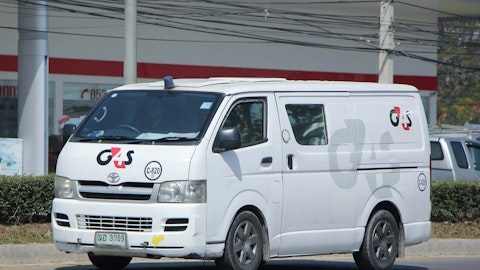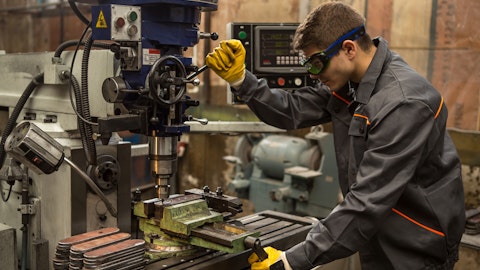Greg Lewis: Okay, great. And then just, I did want a little bit more color around the share repurchases, how we’re thinking about that. Was that just opportunistic or is kind of we’re here, this is something we’re going to kind of look to continue to do and maybe it’s not going to be continual given outlook maybe for Q4, but kind of like any kind of broad thoughts about how you’re thinking about the buyback here? Just given where the stock is?
Jon Douyard: Yes, I mean I think, fortunately we’ve got flexibility from that perspective, we’ve got a fantastic balance sheet despite some of the challenging market environment and so we were able to adapt and be flexible from that perspective, I think we certainly feel there’s value in the stock. Today we bought close to 20 million shares this year. We like the long-term prospects of the company, I think as we move forward, I think we’ve got a significant authorization that’s out there, but we also don’t want to have that be the only capital allocation that we’re doing as a company. I think there we’d like to be able to accelerate growth and we think organic and inorganic investments here over time. And so we’ll continue to balance that as we look at it and I think in the quarter, it was an opportunity for us to repurchase shares that were above and beyond for the annual dilution that we’ve done over the last couple of years.
So good opportunity, we will continue to look at that as a lever for us given where our balance sheet strength is.
Operator: The next question is from Mike Shlisky of D.A. Davidson.
Mike Shlisky: Good morning, and thanks for taking my question. And Daryl, of course, thank you for your partnership overall these years, that really appreciate everything.
Daryl Adams: Thanks, Mike.
Mike Shlisky: Yes. So John, you just touched on it briefly in passing near answer, but it does look like for essentially resolved the strike overnight. I guess, do you feel materially better about your near-term prospects today compared to yesterday, especially regarding the Kentucky plant that was on strike. And do you have any feel for what the trust – we’ll get better coming out of Kentucky after the strike than we have before it?
Jon Douyard: Yes, I mean I think the impact that we have seen to date has been relatively minimal. I think as we got closer to the end of the year and into 2024 is where we really would have seen some risks and so to the extent that the timing of this resolves itself in the next weeks or days, we certainly feel more confident as we enter 2024, there certainly maybe some risk that we took into the narrowing of the guidance at the end of the year. But we haven’t really seen an impact to date, there was minor anyway.
Mike Shlisky: Got it. I also wanted to touch on the battery issue as well. Are there any costs that Shyft Group will have to incur that you had not foreseen. Thanks to the issues that are going on with the supplier or the cost to fixed what’s going on strictly going to be borne by that supplier.
John Dunn: Yes, I think largely carried by the supplier. I mean we obviously have a bit of a distraction internally in supporting that which is inefficiency from a cost perspective and then as we continue to look at other avenues of potential supply, I think there is there could be some incremental costs from that perspective, but in terms of fixing this issue really lies in the supplier.
Mike Shlisky: One last for me and that is the EBITDA and the SV Group, it was relatively flat despite I guess the RV business being down over the prior year. I’m just curious is the RV business generally that challenge on EBITDA. We have a large decline have no change in the segment EBITDA and is there anything you can do to fix that issue you’re working on to get margins in the RV business improve a bit?





